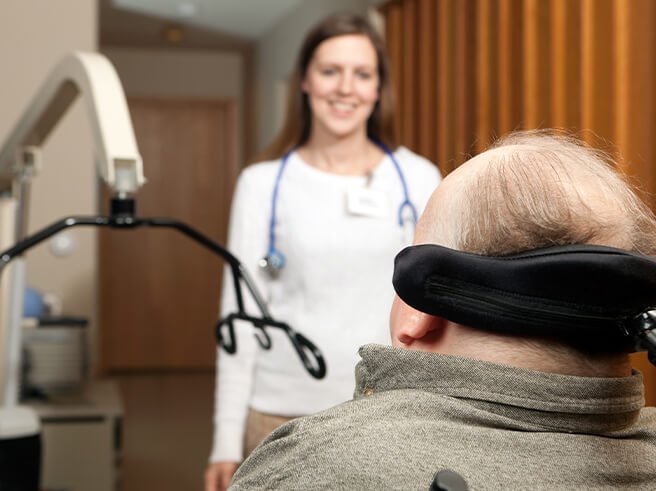Multiple Sclerosis
Nearly 1 million Americans over the age of 18 have been diagnosed with multiple sclerosis (MS). It is a potentially disabling disease of the brain and central nervous system wherein the immune system attacks the myelin (protective sheath) that covers nerve fibers, causing communication problems between the brain and many other parts of the body. Ultimately, MS can cause permanent damage or deterioration of the nerves.
Depending on the location of the affected nerve fibers and the amount of nerve damage, the symptoms of MS vary widely from person to person. Those with severe MS may lose their ability to walk, while others may be able to lead relatively normal lives with long periods of remission without new symptoms. Generally, however, MS symptoms often include:
- Affected movement in the form of numbness or weakness in one or more limbs, tremors, lack of coordination, an unsteady gait, and/or electric-shock sensations that occur with neck movements
- Partial or complete loss of vision, typically in one eye at a time, prolonged double vision, or blurry vision
- Slurred speech, fatigue, dizziness, pain or tingling in various parts of the body, and/or problems with sexual, bowel, or bladder function

Diagnosing MS
There is no test that can detect MS, so doctors rely on what is known as a differential diagnosis – ruling out other conditions that produce similar symptoms. This includes a thorough medical history and examination, followed by several options, including:
- Blood tests to check for specific biomarkers associated with MS
- A spinal tap to find any abnormalities in antibodies associated with MS
- An MRI to find any lesions on the brain or spinal cord
- Evoked potential tests that record electrical signals produced by the nervous system in response to stimuli
Treatment for Multiple Sclerosis in Southeast Michigan
Since there is no known cure for multiple sclerosis, treatment typically focuses on speeding recovery from attacks, slowing the progression of the disease, and managing its symptoms.
At Associates in Neurology, our board-certified neurologists offer several treatment options for MS, including corticosteroids for MS; injectable, oral, and infusion treatments to modify progression of the disease; and physical therapy as treatment for MS signs and symptoms.
To learn more about our customized treatment plans for MS, contact us today at (248) 478-5512 and schedule an appointment at one of our convenient locations in the greater Detroit area. Or, if you prefer, use our secure, online Request an Appointment form and we will promptly get in touch with you.


